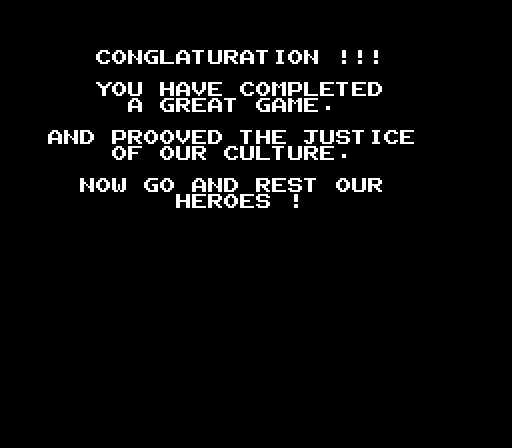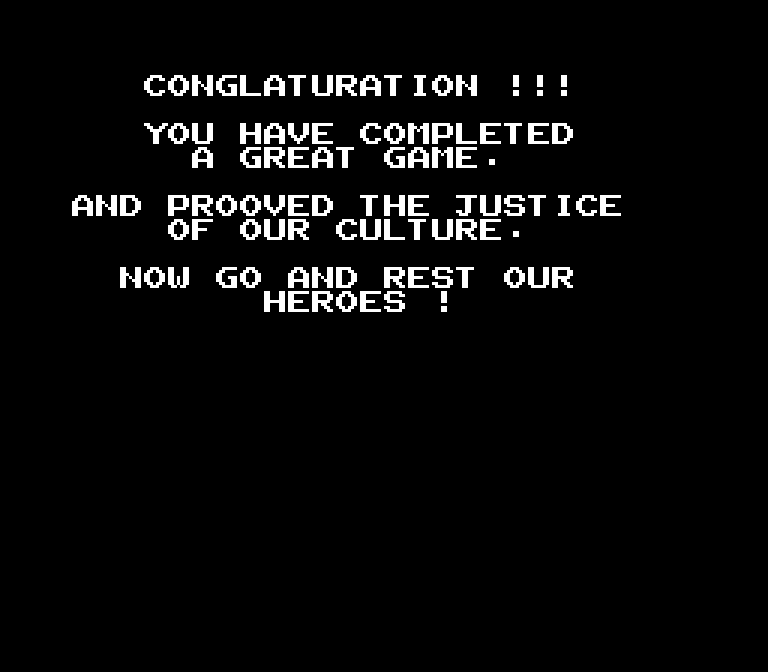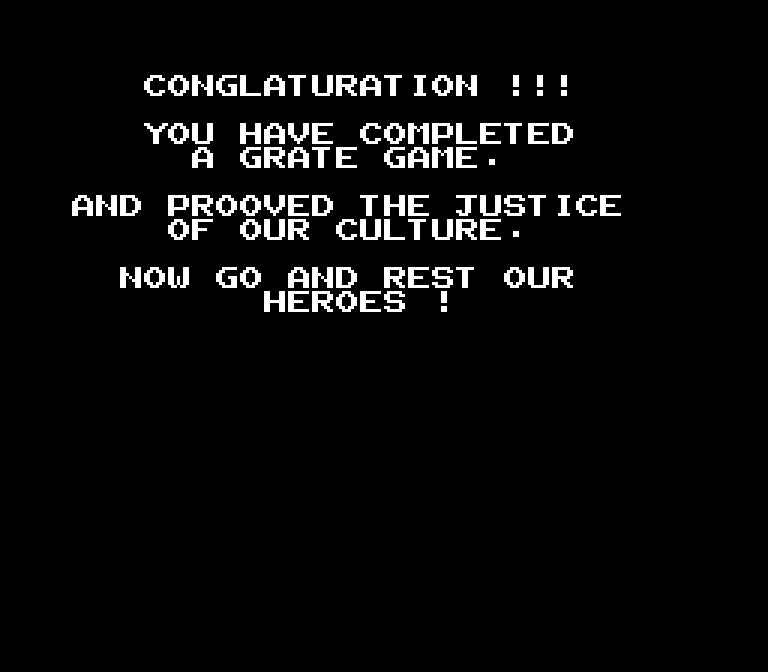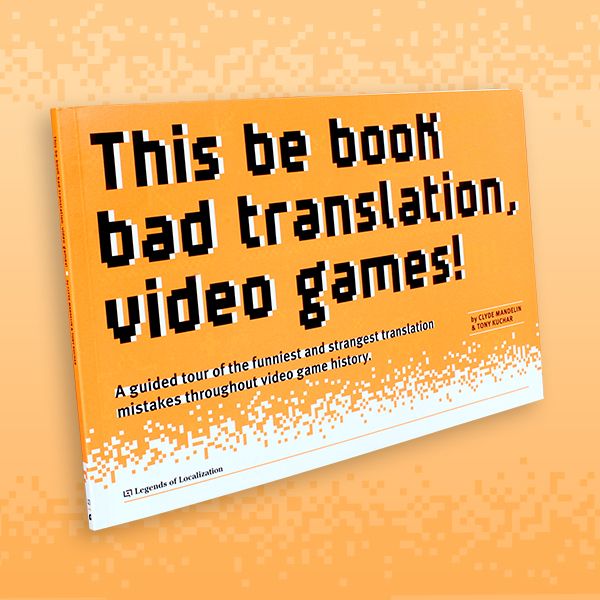Ghostbusters for the NES has been frustrating gamers for 30 years now. It’s confusing, tedious, and punishingly difficult, but if you’re skilled enough to reach and defeat the final boss, you’ll be treated to one of the most famous examples of bad game translation:
 |
If you look up “bad game translation” on Google you’ll probably find this screen in the top results – it’s that famous. But believe it or not, this ending is actually better than the Japanese ending:
To begin with, the Japanese version of Ghostbusters doesn’t even display a congratulatory message. In fact, it doesn’t show anything at all – it’s just a black, blank screen.
 |  |
After some time, the English text scrolls upward as it’s replaced by the game’s credits. Again, the Japanese version remains a completely black screen… until the gibberish text リリ (riri) scrolls up from the bottom:
 |  |
And that’s it. The game returns to the title screen a few seconds later.
Getting to the end of Ghostbusters is a grueling task, so I can’t even imagine what Japanese players felt when they saw the ending. At the very least, it’s clear that the developers and testers rarely saw the ending, if ever.
The thing is, the Japanese game does have an ending included, but the programmers forgot to tell the CPU to switch to the right data bank before displaying it. Luckily it’s a simple bug to fix – use the Game Genie code PAZKKL or this IPS patch.
With the ending working properly, we can see what the Japanese text was supposed to say:
 |  |
That’s right – it’s the same as the English message, but with yet another typo: “grate” instead of “great”. This means that someone at some point chose to fix one mistake but none of the others.
Taken all together, these problems mean that the English translation, as notoriously bad as it is, is actually a vast improvement over the original Japanese version. Somehow, Ghostbusters for the NES managed to be legendarily bad yet good at the same time.



You have to wonder if Japanese players thought there was some kind of meaning to this.
There is no meaning, only リリ.
I hear if you finish the game without taking a single hit, you get to fight Lily.
“doesn’t even display a congratulatory message”
conglaturatory*
I see what you did there.
That is kind of amusing. XD
I think “prooved” is a valid if very, very archaic spelling of “proved,” for I have seen it in literary works dating to the 17th/18th Centuries, such as “The Captivity Narrative of Mary Rowlandson.”
Conglaturation!
I reded this article!